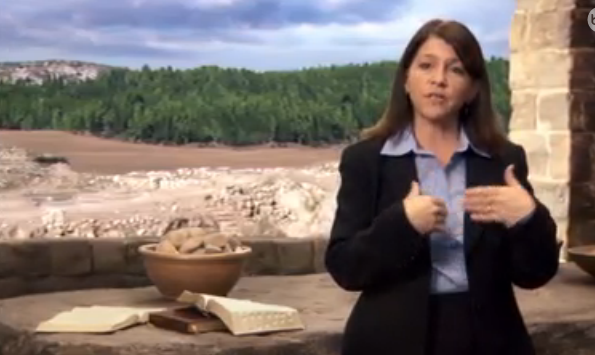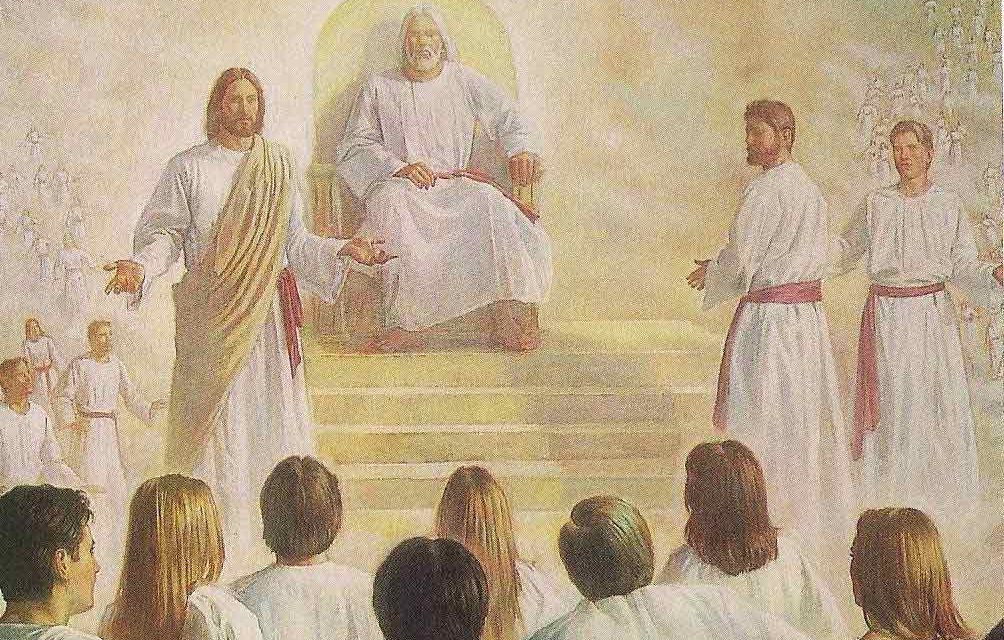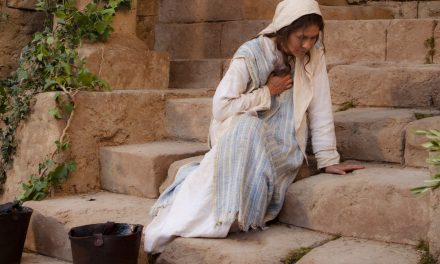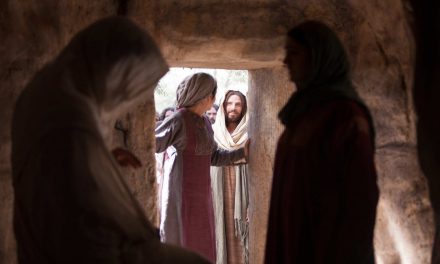MARCUS H. MARTINS: One third of those spirits chose Lucifer’s plan. And Lucifer rebelled, and these one third of the spirits, they chose to follow Lucifer in their rebellion. Essentially the nature of their rebellion was that they would not accept Jehovah as their Savior. There is no “plan B;” therefore if you don’t accept Jehovah’s plan, you don’t gain salvation. And that’s why he and those spirits were named Perdition and Sons of Perdition.
Oh, argument blasphemous, false and proud!
Words which no ear ever to hear in Heav’n
Expected, least of all from thee, ingrate,
Iin place thyself so high above thy peers.
Canst thou with impious obloquy condemn
The just decree of God, pronounced and sworn,
That to his only Son by right endu’d
With regal scepter, every soul in heaven
Shall bend the knee, and in that honour due
Confess him rightful king? (John Milton, Paradise Lost, Book V, 809–818 )
ALISON COUTTS: Here we have exactly what we have in Abraham, that Satan wanted his own plan, wanted to forget about agency, wanted to bind the free.
MARCUS H. MARTINS: They were essentially expelled from the presence of God, and they were thrust out to roam the earth. And the Lord allowed them to be here and to try and tempt us. The only thing we can infer is that those of us who are alive here, we chose the Savior’s plan, which was the Father’s plan in the first place. We trusted that this was the way back, or the only way back to the presence of the Father, and that we trusted that Jehovah would indeed become our Savior, and that He would not fail in that mission when the time would come.
 S. KENT BROWN: What can we say about the enduring question of the relationship between Jesus and Jehovah?
S. KENT BROWN: What can we say about the enduring question of the relationship between Jesus and Jehovah?
GAYE STRATHEARN: You know, during the centuries since Jesus walked on these very shores, many Christian scholars have struggled to reconcile the God of the Old Testament and Jesus of the New.
JOHN S. TANNER: I think that’s because too many people perceive that the one is exclusively a God of justice, and the other one is exclusively a God of mercy. Therefore they have a difficult time accepting that the two are really one, and that one is Jesus Christ.
GAYE STRATHEARN: Yes, many scholars maintain that it was only later Christians who kind of forced the connections between the two in order to justify their new religion.
S. KENT BROWN: You know, in the earliest literature, and from some surprising sources, I think we can confirm that Jehovah who feeds His people manna in the wilderness is also Jesus who feeds the 5000 with a few loaves and fishes not far from here.
ERIC D. HUNTSMAN: In a statement attributed to Joseph Smith, the prophet is reported to have claimed that the first miracle of Jesus was the creation. To paraphrase Elder Talmage, a miracle is not something which violates the laws of nature, but rather it’s the exercise of higher laws that we don’t understand, to achieve a desired aim. This goes along perfectly with the Logos Hymn, that said, Through the Word all things were created (see John 1:3). But this idea is not unique to the Logos Hymn or the writings of John in early Christian texts. In fact, in some texts that were probably written earlier than the Gospel of John, the writings of Paul, there are references to Jesus being the Creator.
RICHARD D. DRAPER: One of the propensities of Paul is to take scriptures that apply to Jehovah in the Old Testament, and reapply them in the New Testament to Jesus Himself. Paul understood, as the early Christian community did, that Jesus was indeed the Jehovah of the Old Testament.
RICHARD HOLZAPFEL: It seems Paul’s quote there, or his allusion in the book of Romans chapter 10, actually simply is part of a larger discussion that the earliest Christians had talked about. You can imagine the surprise. The debate of course during Jesus’ ministry is: Is He a great teacher, is He some prophet sent by God, is He the successor of John the Baptist, or in fact is he the mashiakh, the Messiah, the Anointed One, whom God was sending? And here Peter announces He is the Messiah, but even more, He’s also the Lord.
CECILIA M. PEEK: In John, he records in chapter 8, verse 58, after a sort of extended dispute with the Pharisees and others, they challenge him and say, You’re not yet 50 years old, and you seem to be implying that you knew Abraham. And his famous response to this is, “Before Abraham”—and the Greek phrase there is genesthai, which can mean “before Abraham was” or “before Abraham was born” or “before Abraham came into being”—and then he uses this key phrase, he says, “I Am”, egô eimi. Which is the same phrase that is used in the Greek translation of the Old Testament for Exodus chapter 3, verse 14, where the God of the Old Testament identifies himself to Moses as “I Am That I Am”, and that you should return to the children of Israel and tell them that I Am has sent you. So he seems to be suggesting there, with the use of that verb, that I am the God of the Old Testament, in other words I am Jehovah. And it seems clear that his audience interpreted his response in that way, because what John tells us is that immediately thereafter they took up stones to cast at him. In other words the implicit suggestion is that they were preparing to stone him for blasphemy because he was saying that he was Jehovah.
ANDREW C. SKINNER: I think in the pages of the New Testament we find a Jesus that is so filled with compassion that He can’t help Himself. If He sees somebody in need, His natural instinct is to go and provide assistance to that person. And yet it is to the woman at the well, as recorded in John chapter 4, that He reveals His true identity. You know, she’s impressed with Jesus’ ability to forecast the future, and it’s almost as though John reveals to us a step-by-step realization on her part of who He really is. And she ultimately says, you know, I know that the Messiah’s supposed to come. And in a stunning, stunning announcement, Jesus says, “I that speak unto thee am he (John 4:26)”
CECILIA M. PEEK: The story of the woman at the well is to my mind a very significant development of several of John’s central themes. Here He is addressing a woman who is a Samaritan, and so she is viewed by the more traditional Jewish community as being outside the boundaries. And yet Jesus approaches and addresses her. Beyond that, He also makes quite clear in His exchange that this is a woman whose life is, by the standards of the law, considered sinful. Christ advises her to go and get her husband, and she says, I have no husband. And Christ knows about her past, and articulates this to her. And she says, I perceive that you must be a prophet (see John 4:19). But even after He comes to understand the sinful and imperfect condition of her life—and not just of the life of a Jewish woman, but the life of a Samaritan woman, who was already outside the lawful boundaries in the Jewish mind, and further because of the life she is leading beyond those boundaries, Christ continues to associate with her and to address her, and to try to bring her along to faith.
And so when he says to her, “I Am,” in addition to asserting His status as the God of the Old Testament, it seems to me He is also saying something about His absolute presence. And I mean that both in a temporal and in a chronological sense, that right now, in this moment, all moments are present. “I am the totally present and totally current God. And your past and your future can all be decided in this moment of belief. Your past can be forgiven, your future can be assured if you will believe now.”
I think the Samaritan woman understood, and she makes this quite clear, because as she leaves to go inform others about him she says, I have met a man who “told me all things that ever I did; is this not the Christ?” (John 4:29). So I think the combination of His prophetic powers in response to her, and the assertion of his identity as I Am, certainly leads her to believe that this is the Christ.
CAMILLE FRONK OLSON: The early Christians understood that Jesus Christ was the God of the Old Testament. They understood that He had tremendous glory and power, even to creating the earth, that He preceded any other creation. And yet He divested himself of that glory to be born on the earth as a servant, that He could die for us and perform His atoning sacrifice.
RICHARD D. DRAPER: We have to do the same thing that we did in heaven. First we have to regain that testimony that we had. The second thing then is we have to live the precepts of the gospel so we get the spirit of God in our lives. And having that spirit, then we have to have the fortitude to do what we have done before. And what is that? To witness, to witness with all our hearts and souls that Jesus is the Christ, and He was the foreordained Savior, and in the meridian of time He came down and he did everything He promised He would do. And therefore He brought salvation, and it’s our job to witness that same salvation that is in Christ Jesus, today.
ANDREW C. SKINNER: You can tell that He loved the people. He walked through the villages. And there are a lot of people that probably are descendants of those that lived here in Jesus’ day. And you can imagine Him walking through the villages, and He loved them and He cared for them, and He just wanted to bless their lives.
ANDREW C. SKINNER: It is as though the Atonement is macro-salvation. It is salvation for the whole universe. And yet when you walk through the villages, you get a real sense that this is micro-salvation—that he’s interested in each individual person, their desires, their wants, their needs, their ailments. And what He does is He takes time to heal the specific ailments, as we said, but He also takes the time to heal the whole person. And each individual person then makes up the macro-salvation.
In the sincere quest to understand and come to know the historical Jesus, the mortal man, Latter-day Saints embrace the truths that Jesus’ history extends far back, before the foundation of the world—that prior to walking the roads of Palestine, He was Jehovah of the Old Testament—who, under the direction of His Father, “created the heavens and the earth, and all things that in them are” (3 Nephi 9:15).









